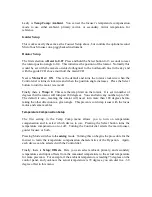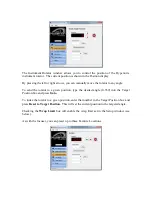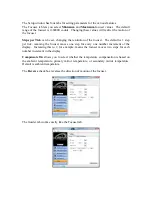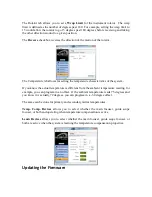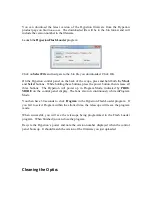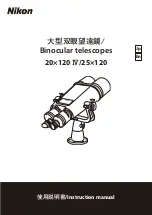
Note:
A little dust won’t hurt your telescope, so it is not recommended that you clean the
Hyperion’s optics very often. It is better not to risk damaging the coatings. If you do
find it necessary to clean the optics, follow the steps below.
Be extremely careful when removing the optics from the telescope, and when
cleaning them, so as not to damage the optics or coatings.
Removing the Mirror
The basic procedure for removing the optics is to remove the focuser, then to remove the
telescope back plate. The back plate is lifted out of the scope and set mirror-side up on
the instrument rotator assembly.
Begin by detaching the secondary dew heater wire at the front of the telescope. The is a
black clip connector just inside the front ring of the telescope against the tube wall. This
cable runs along the tube wall to the wireless control board which is mounted to the
telescope back plate.
Next, carefully place the telescope nose-down on a piece of cardboard or carpet.
Loosen the Feathertouch Focuser lock ring entirely (see page 4). This will allow you to
remove the focuser. Set the focuser aside—note that it will have grease on the base, so
be careful where you set it.
Remove the 8 outer bolts that hold the back plate onto the tube ring.







